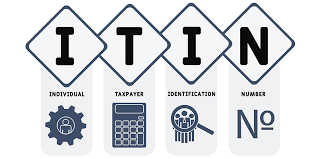ITIN: Understanding the Consequences for Employers
In today’s workforce, businesses often encounter individuals with diverse backgrounds and documentation. As an employer, it’s crucial to navigate the complexities of hiring practices, especially when it comes to verifying the eligibility of employees to work legally in the United States. One area of concern that employers should be aware of is the Individual Taxpayer Identification Number (ITIN) and its limitations in the employment context.
An ITIN is a tax processing number issued by the Internal Revenue Service (IRS) to individuals who are required to have a U.S. taxpayer identification number but are not eligible to obtain a Social Security Number (SSN). It’s important to note that an ITIN is solely for tax purposes and does not confer eligibility to work in the U.S. or provide legal status.
Employers must adhere to strict guidelines set forth by the U.S. Citizenship and Immigration Services (USCIS) when verifying the identity and employment eligibility of new hires using the Form I-9, Employment Eligibility Verification. While the Form I-9 provides a list of acceptable documents for this purpose, the ITIN card is notably absent from both List A (documents that establish both identity and employment eligibility) and List B (documents that establish identity only).
Legal Compliance Risk:
Employers who accept ITINs as valid documentation for employment eligibility verification may inadvertently violate federal law, which requires verification of an individual’s identity and work authorization using specific documents listed on the Form I-9. Failure to comply with these requirements can result in severe penalties, including fines and legal liabilities.
Immigration Enforcement Risk:
By accepting ITINs instead of valid documents listed on the Form I-9, employers risk attracting the attention of immigration enforcement authorities. This could lead to audits or investigations into the company’s hiring practices, potentially resulting in fines, reputational damage, and even criminal charges if evidence of knowingly hiring unauthorized workers is found.
Employers who disregard the proper verification process and hire individuals solely based on ITINs may face negative repercussions to their reputation. This can impact relationships with customers, partners, and the broader community, leading to loss of business opportunities and trust.
Hiring individuals without proper work authorization not only exposes employers to legal and financial risks but also carries serious consequences for the unauthorized workers themselves. These consequences may include:
Denial of employment opportunities in the future due to a tainted employment record.
Risk of deportation or removal proceedings if their unauthorized status is discovered.
Inability to access certain benefits and protections afforded to legal workers, such as minimum wage, overtime pay, and workplace safety regulations.
While ITINs serve a specific purpose in the tax system, they are not valid for establishing employment eligibility in the United States. Employers must exercise diligence and adhere to federal regulations when verifying the identity and work authorization of their employees. Failure to do so can have severe legal, financial, and reputational consequences for both employers and unauthorized workers. By understanding the risks associated with accepting ITINs and prioritizing compliance with employment verification requirements, employers can protect their businesses and ensure a lawful and ethical workforce.
Remember, it’s always advisable to consult legal counsel or HR professionals for guidance on compliance with employment laws and regulations.





